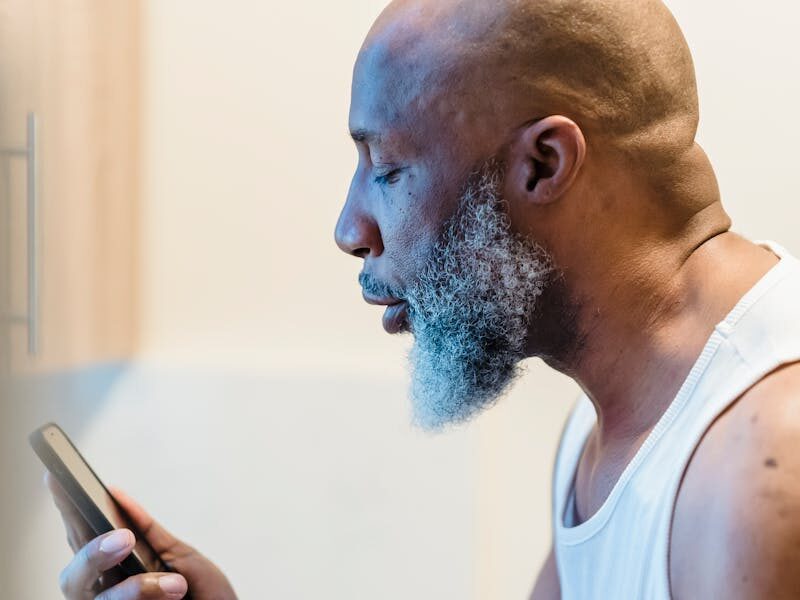
Some people move through the world without ever stopping to consider how others feel. It’s not always intentional, and it doesn’t always look dramatic from the outside. But over time, their behavior forms a clear pattern: they can’t emotionally connect, and they don’t try to. You start to feel unheard or dismissed after every interaction. These habits often reveal a deeper truth — they simply lack empathy.
They dismiss people’s feelings instantly.

When someone shares an emotion, they brush it off within seconds. Instead of listening, they rush to say it’s “not a big deal” or that the person is overreacting. They don’t slow down, ask questions, or try to understand the situation. The goal is to make the discomfort disappear quickly, not to understand the person sitting in front of them.
They make every conversation about themselves.

You bring up something meaningful, and they immediately flip the conversation back to their own experiences. It’s not that they want attention — they literally don’t know how to sit with someone else’s emotions. They can only understand situations through their own lens, so they hijack the moment without realizing how dismissive or invalidating it feels.
They apologize without actually accepting blame.

Their apologies sound more like deflections than accountability. They say things like, “I’m sorry you took it that way,” or “I wouldn’t have reacted like that if you didn’t…” It’s always framed as someone else’s misinterpretation or fault. They don’t acknowledge the impact of their actions, and the apology becomes a tool to end the conversation, not repair anything.
They only show interest when something benefits them.

They rarely ask thoughtful questions about your life. When they do, it’s surface-level or driven by something they want. Your goals, challenges, and feelings don’t register unless they’re connected to their own needs. Conversations often feel one-sided because they’re not invested in who you are — they’re only invested in what you can provide.
They avoid emotional conversations altogether.

Any discussion involving feelings makes them uncomfortable. They check their phone, change the subject, or shut down. Vulnerability feels foreign to them, so they avoid it at all costs. You end up walking away feeling like you shared too much, even though you didn’t. Their discomfort comes from not having the emotional tools to meet you where you are.
They judge people harshly without context.

Mistakes are unforgivable in their eyes. Instead of considering circumstances, stress, or personal struggles, they jump straight to criticism. They label people as irresponsible or weak because they don’t recognize the invisible challenges others might be carrying. Their worldview is rigid because empathy is what helps people understand the complexity behind human behavior — and they lack it.
They get irritated when others need emotional support.

Supporting someone feels like an interruption rather than a natural part of a relationship. When others turn to them for help, they become impatient or annoyed. They don’t understand why someone would need comfort or reassurance. Their reaction isn’t rooted in malice; it’s simply a blind spot in how they process emotional needs.
They react with annoyance instead of concern.

When someone is hurting, their first instinct is irritation. A friend crying, a partner overwhelmed, or a coworker stressed feels like an inconvenience. They don’t ask if someone is okay or offer comfort. They just want the disruption to stop.Their emotional disconnect becomes obvious in moments when care would normally come naturally.
They hold grudges without trying to understand people.

They struggle to forgive because forgiveness requires perspective. When they’re hurt, they don’t consider that someone might be overwhelmed, distracted, or acting out of their own pain. They store the mistake and replay it instead of talking through it. Their inability to understand motives keeps the grudge alive long after the issue could have been resolved.
They interrupt emotional conversations with logic.

If you explain how something made you feel, they respond with technical solutions or strict reasoning. They don’t recognize that you’re sharing emotion, not asking for a strategy. Their instinct is to “fix,” not to listen. Because they disconnect from feeling, they can’t comprehend why emotional validation matters more than problem-solving in certain moments.
They mock or minimize vulnerability.

When someone opens up, they might roll their eyes, make a joke, or imply the person is being dramatic. Vulnerability makes them uncomfortable, so they push it away with sarcasm or dismissal. This reaction creates an atmosphere where people stop sharing because they feel embarrassed for having needs that aren’t taken seriously.
They never consider how their actions affect others.

They move through life assuming their choices only impact themselves. If someone gets hurt, they’re surprised — they truly didn’t think their behavior mattered. They don’t reflect on how their tone, decisions, or habits affect people around them. Without empathy, they simply can’t imagine the emotional ripple effect of their actions.
They invalidate experiences they haven’t lived.

If something has never happened to them, they assume it’s exaggerated or unimportant. They can’t imagine a reality outside their own, so they downplay other people’s struggles. When someone explains their pain, they respond with disbelief instead of compassion. Their lack of imagination becomes a lack of humanity.
They avoid responsibility for emotional harm.

Even when confronted directly, they distance themselves from the emotional part of the issue. They may admit what they did, but they won’t acknowledge how it made someone feel. Emotional responsibility feels like a foreign language. Without empathy, they can’t connect actions to emotions, so accountability never goes deeper than surface-level acknowledgment.
They don’t notice when people around them are hurting.

Most people can sense when someone is upset — a shift in tone, a quiet moment, or a changed expression. Someone with zero empathy misses these signs completely. They move forward as if nothing is different. Even when pain is obvious to everyone else, they remain disconnected. It’s not intentional; it’s simply an emotional blind spot they never developed.

